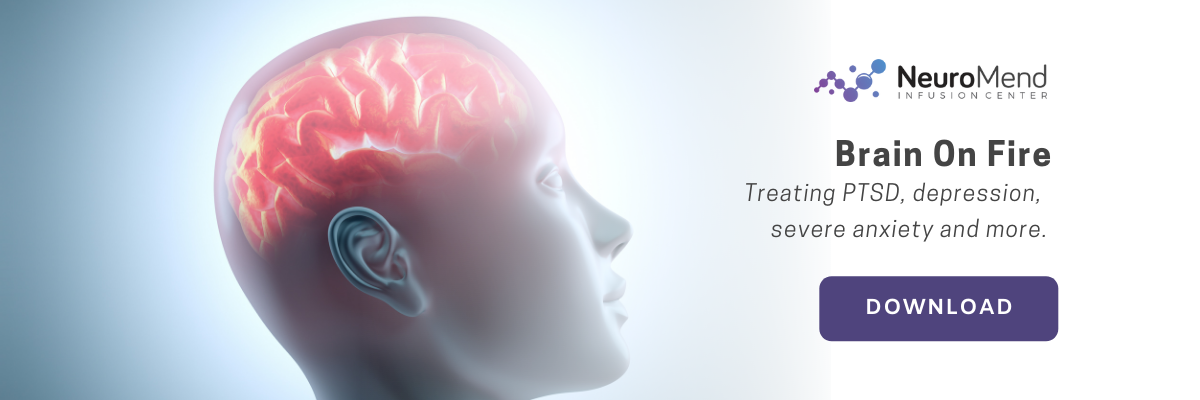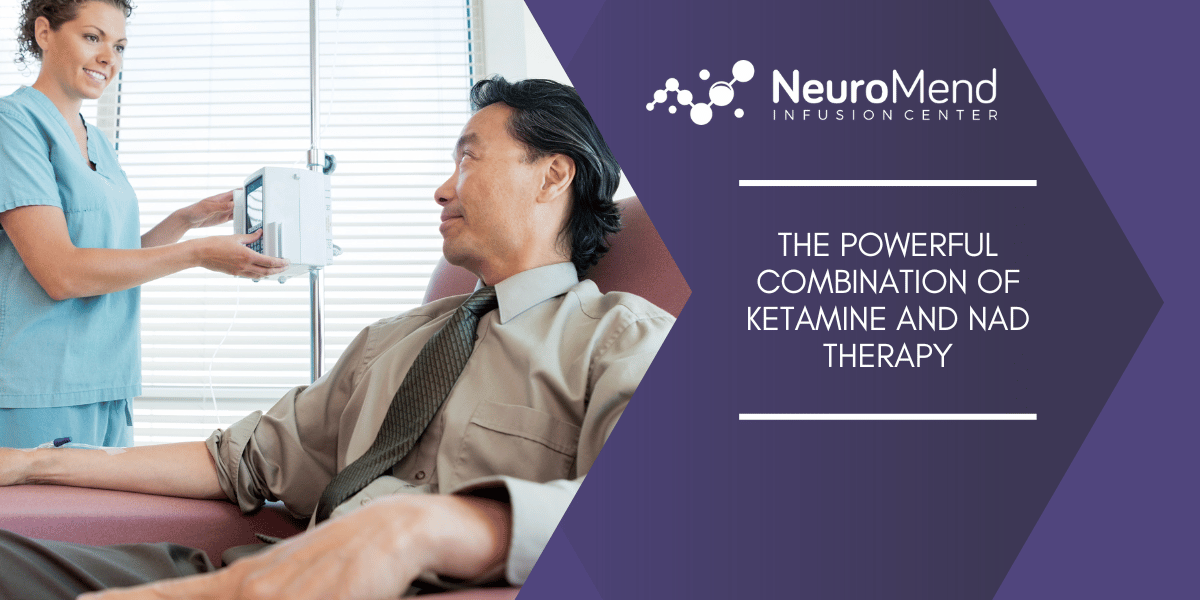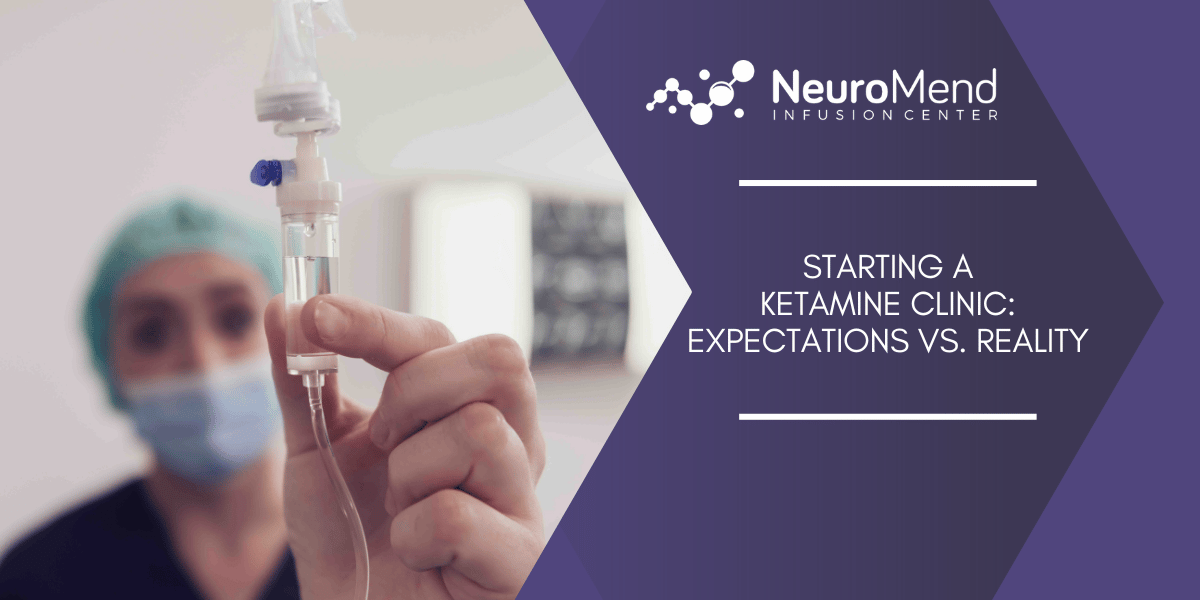
In the world of mental health treatment, innovative approaches are continually emerging to address the complex landscape of conditions such as depression, anxiety, and PTSD. One such approach gaining traction is Ketamine-Assisted Psychotherapy (KAP).
What is Assisted Psychotherapy?
Assisted psychotherapy refers to a therapeutic approach where a trained mental health professional assists individuals in addressing and overcoming psychological and emotional challenges. Unlike traditional therapy where conversation alone is the primary mode of treatment, assisted psychotherapy incorporates adjunctive interventions or substances to enhance the therapeutic process. These adjuncts can range from mindfulness techniques to ingesting psychedelics, such as LSD, psilocybin, and now ketamine.
The primary goal of assisted psychotherapy is to create a supportive and safe environment where individuals can explore their thoughts, emotions, and behaviors. This approach allows for a deeper understanding of underlying issues, leading to personal growth, healing, and improved mental well-being.
Types of Assisted Psychotherapies
In recent years, there has been a resurgence of interest and extensive research dedicated to exploring the therapeutic potential of various psychedelics in both clinical and nonclinical settings.
These psychedelics selected for assisted psychotherapy encompass a diverse array. Among them are chemical compounds like ketamine, MDMA, and LSD, while others originate from plant sources, including psilocybin, DMT, peyote, ayahuasca, and ibogaine.
Prior to the outlawing of psychedelic-assisted psychotherapy with the Controlled Substances Act in 1970, substantial evidence had already validated their therapeutic potential in treating a range of health conditions, including PTSD, depression, anxiety, and addiction. This resurgence of interest and research holds promise for uncovering new avenues of healing and personal growth with psychedelics.
What is Ketamine?
Ketamine, initially developed as an anesthetic in the 1960s, has found new applications in the world of mental health treatment. It is a dissociative anesthetic, which means it can induce a temporary altered state of consciousness characterized by disconnection from physical sensations and surroundings. This unique property of ketamine has sparked interest in its potential for treating various mental health conditions.
Ketamine is available in different forms, including liquid for intravenous (IV) administration, intramuscular (IM) injection, and nasal spray. Its rapid-acting properties make it an attractive option for individuals who have not responded well to conventional treatments, such as antidepressants.
Why is Ketamine Used for Assisted Psychotherapy?
Ketamine's use in assisted psychotherapy has gained prominence due to several key reasons:
Rapid Relief
Ketamine has a notably fast onset of action. Many individuals experience relief from symptoms, such as mood, thoughts, and perception, within hours or days, in contrast to the weeks or months often required for traditional antidepressants to take effect. This rapid relief can be life-saving for those in crisis.
Treatment-Resistant Conditions
Ketamine has shown promise in treating treatment-resistant depression, anxiety disorders, PTSD, and even bipolar depression. For individuals who have not responded to other treatments, Ketamine can provide newfound hope.
Enhanced Therapy
The altered state of consciousness induced by Ketamine can facilitate a deeper and more profound therapeutic experience during psychotherapy sessions. It allows individuals to explore and process emotions and trauma in ways that may not be accessible in a typical sober state.
Reduction of Suicidal Ideation
Ketamine has been particularly effective in reducing suicidal ideation, making it a crucial option for those struggling with suicidal thoughts.
Improved Quality of Life
Many individuals report not only symptom relief but also an overall improved quality of life after ketamine assisted psychotherapy. This includes enhanced emotional well-being, increased resilience, and a renewed sense of hope for the future.
cLINICAL sTUDIES
Numerous clinical studies have explored the efficacy and safety of ketamine-assisted psychotherapy across various mental health conditions. Research findings indicate promising results, particularly in the treatment of depression and PTSD.
TRYING ASSISTED PSYCHOTHERAPY
Embarking on a journey of assisted psychotherapy, particularly with ketamine, can evoke a mix of emotions – curiosity, hope, and perhaps some apprehension. It's essential to approach this therapy with an open mind and a willingness to engage in the therapeutic process.
While there is still much to uncover about the world of assisted psychotherapy, experts firmly believe in its potential to provide substantial benefits for individuals dealing with conditions like obsessive-compulsive disorder (OCD), addiction, treatment-resistant depression, and post-traumatic stress disorder (PTSD).
During a ketamine-assisted therapy session, a trained therapist guides the individual through the experience, providing support and facilitating introspection. The ketamine-induced state of consciousness may enable individuals to explore deeply ingrained patterns of thought and emotion, leading to insights and emotional breakthroughs.
If you are considering participation in assisted psychotherapy, it's advisable to conduct thorough research, read reviews, and assess professional accreditation before selecting a therapist. Note: Always check with your insurance company to see if your services are covered.
Adjunctive vs. Assisted Psychotherapy
Adjunctive and assisted psychotherapy are both approaches used in mental health treatment, but they differ in their emphasis and application:
-
Adjunctive Psychotherapy:
- In adjunctive psychotherapy, additional therapeutic interventions are provided alongside the primary treatment. These interventions are considered supplementary and are aimed at enhancing the effectiveness of the main treatment.
- Adjunctive therapies can include various techniques such as mindfulness practices, relaxation training, or exercise regimens that complement traditional psychotherapy or medication.
- The goal of adjunctive psychotherapy is to address specific symptoms or issues that may not be fully addressed by the primary treatment alone.
-
Assisted Psychotherapy:
- Assisted psychotherapy typically refers to a form of psychotherapy where the therapist is actively involved in guiding and supporting the client through the therapeutic process.
- This can include traditional talk therapy where the therapist provides insight, guidance, and support to the client as they work through their issues.
- Assisted psychotherapy can also refer to therapies where the therapist provides more direct assistance, such as cognitive-behavioral therapy (CBT), where the therapist helps the client identify and change negative thought patterns and behaviors.
In summary, adjunctive psychotherapy involves supplementary interventions provided alongside the primary treatment, while assisted psychotherapy involves the therapist actively guiding and supporting the client through the therapeutic process.
AT NEUROMEND
WE OFFER INNOVATION & HEALTH SOLUTIONS
NeuroMend Infusion Center is a unique melding of specialty psychiatry and anesthesiology, inspired to bring an innovative, effective treatment to those suffering from various conditions.
We offer cutting-edge Ketamine protocols that have helped thousands of patients get back on their feet and achieve optimal health. Contact us today to learn more about our treatment solutions or schedule a free consultation.
Disclaimer: As of September 29, 2023, NeuroMend no longer offers Spravato treatments. We apologize for any inconvenience and encourage you to consult with our team or your healthcare provider for alternative options.
ABOUT NEUROMEND INFUSION CENTER
![]() We are an Evidence-Based Center of Excellence and the leading provider of Ketamine Infusions, IV Infusions and Ketamine Consulting Services for Ketamine Clinics and IV Therapy Clinics.
We are an Evidence-Based Center of Excellence and the leading provider of Ketamine Infusions, IV Infusions and Ketamine Consulting Services for Ketamine Clinics and IV Therapy Clinics.
We Provide Effective Treatment For The Following Conditions: Major Depressive Disorders, Post-traumatic Stress Disorder (PTSD), Bipolar Depression, Obsessive Compulsive Disorder, Suicidal Ideations, (OCD), Chronic Migraines, Severe Anxiety, Fibromyalgia and Chronic Pain Syndromes











